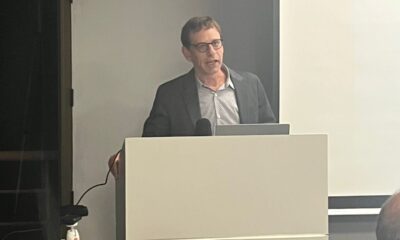
World
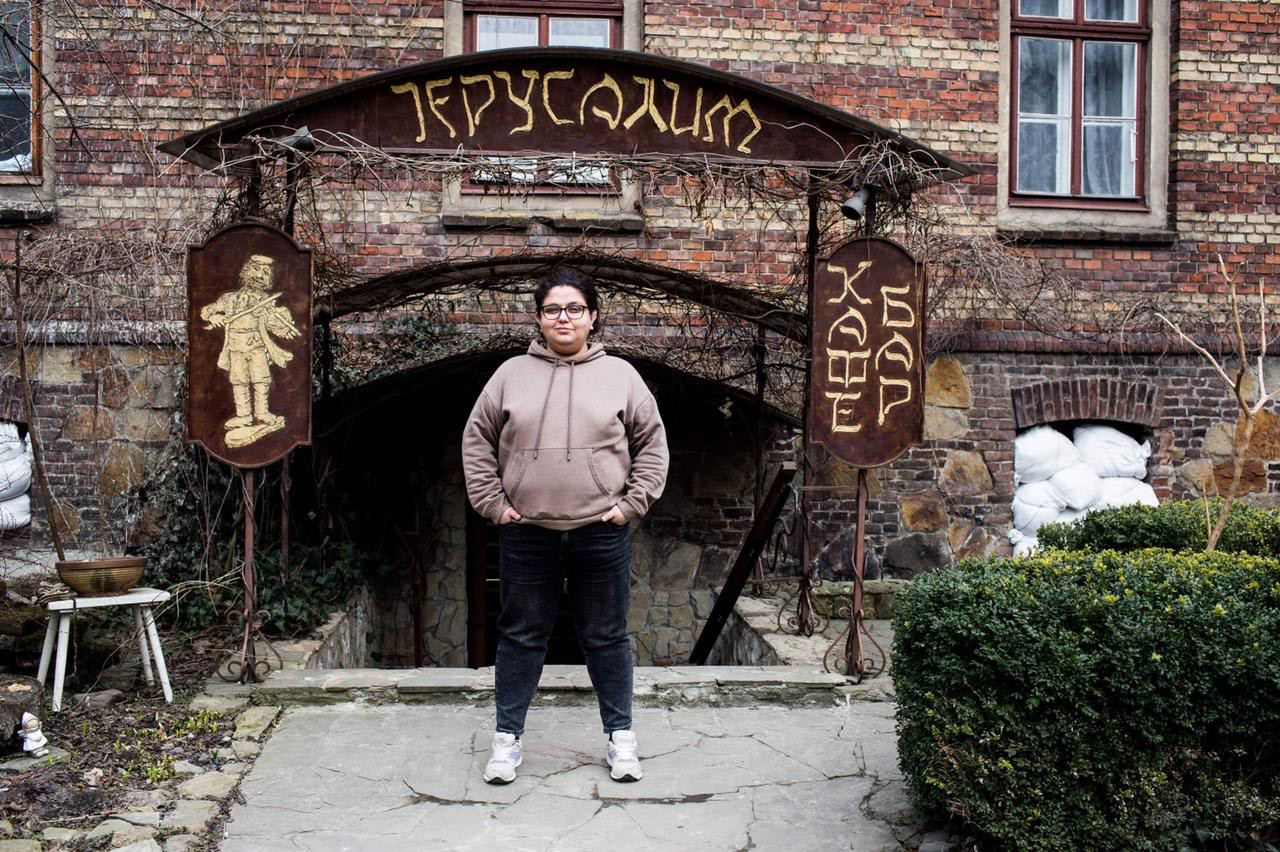
Lviv café owner feeds Ukrainian refugees
Before the Ukraine war, Lola Landa’s restaurant in Lviv, called Jerusalem, was grabbing attention for its delicious take on Ashkenazi cuisine.
Most South African Jews would have felt right at home enjoying 42-year-old Landa’s gefilte fish and chopped herring. But after Russia invaded Ukraine, Landa began feeding thousands of refugees who flooded Lviv. Now, she feeds 100 to 120 people daily, all while still trying to run a business and minimise waste.
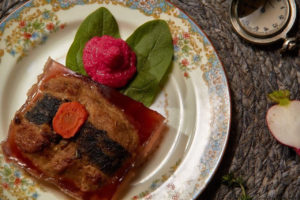
“The first three days after the start of the war, we were in shock and couldn’t understand what to do: work or shut down, flee or stay?” she tells the SA Jewish Report from Lviv. “When you’re in a state of shock, you can’t sleep, you can’t eat, it feels like the uncertainty is killing you. The only thing that was constant was the understanding that we should help. But who and how?
“At the end of the first week of the war, Lviv was full of refugees. Restauranteurs created their own chat groups and, with volunteers, delivered food to those who needed it. There were constant requests on the chat: 20 lunches for the hospital, 120 people from Moriupol, 40 people from Buchi … the flow of messages didn’t stop for a minute. Two months passed like that.
“At first, we cooked from the products we had. Sellers of vegetables, fruit and meat gave away all their products for free, just to help people. Then it became difficult to get food,” she says. “I never thought that there would be times when I would have money but couldn’t buy anything with it. Now, almost all the goods we are used to are on the shelves, but we face lack of money. For the first two months, we were actively supported by friends and neighbouring companies, some with donations, some with food products. Today, such assistance has stopped because people are running out of money.
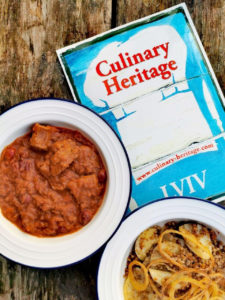
“Together with World Jewish Relief, we have organised for 15 internally displaced people to receive food from us. But this provision covers the needs of only 15. We’re now feeding 100 to 120 people daily, so where to get the rest of the resources and strength? I don’t know myself. I’m involved in fundraising, and I try to work with charitable foundations. We feed people who live in shelters and they count on us, so we’ll hold on as long as we can.”
The food they prepare is simple: porridge, meatballs, soups and salads. “But it’s through food that we show care, and that’s why it tastes like it’s from a Michelin restaurant,” she says with a smile.
Landa was born in Lviv “to a Jewish family with deep roots. But due to the tragic circumstances of those times – Communism and Soviet power – they lost touch with tradition,” she says. “All I inherited were old recipes and tastes that shaped my perception of Jewish cuisine. I started keeping Shabbat and learning the history of my people. This influenced my future path.
“We have a large family – my mother, her brother and his wife, my husband, our two children, and my sister. We’re all involved in our small family café, Jerusalem. In 2021, our café was included in the Top 100 best food establishments of Ukraine. A year before, it received the European Culinary Heritage award, and in 2022, an article about us appeared in the global publication Eater.”
She says Ashkenazi food “is interesting in terms of its cooking principles, as it’s based on kosher laws and flavour accents. If I were to describe the dishes of Ashkenazi Jews in two words, I would say that it has the taste of honey and black pepper. Among the indisputable hits of our menu for 15 years are gefilte fish, forshmaks [a chopped herring appetiser], eisik fleiche [beef in sweet and sour sauce with honey, cherries, and gingerbread], kasha varnichkes [pasta with buckwheat and chicken cracklings], and oneke lekah [spicy honey bread]. We introduce traditional dishes to the menu for chaggim.”
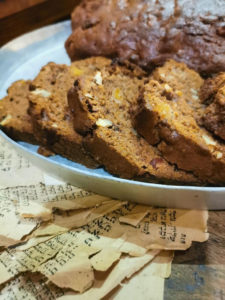
In addition to the cafe, “our Lviv Smart Food project has been developing for five years. We prepare and offer a five-course balanced meal and adhere to zero waste. All deliveries are made in returnable glass containers and reusable eco-bags. This initiative was recognised as the best Zero Waste Project of 2021.”
Everything changed when the war began. “We sent my mother and children to Germany, where our relatives live. I stayed in Lviv with my husband because we still have 15 staff members for whom we also take responsibility.”
Even in the chaos of war, they are trying to reduce waste. “In particular, we were horrified at how much money was initially spent on disposable tableware. Therefore, we ordered delivery and distribution of food in reusable containers and dishes. Eight restaurants followed us. A powerful dishwasher and freezer will help in such conditions to cook for more people.”
She says their business model has always had a tangible social component. “Even before the pandemic, we supported the Jewish elderly. We organised festive dinners, workshops and themed treats. For socially isolated people to go out to a restaurant for lunch, it’s already a holiday. In the pandemic, we delivered food and bought groceries. The essence of our work hasn’t changed, only the goal. We used to work for profit, now for victory!”
Even though they are in the West, they still feel the effects of war. “A bomb fell not far from our house, and many people died. You can still sense the smell of burning. It’s not like the smell of an ordinary fire, it’s a completely different smell. There’s no one in Ukraine who hasn’t lost loved ones or friends because of this war. Soldiers are buried in the cemetery near our café. We see funeral processions almost every day. We see women left without husbands, children left without parents. Every day we have a living reminder that everything we do is for victory. Every step, every meal.”
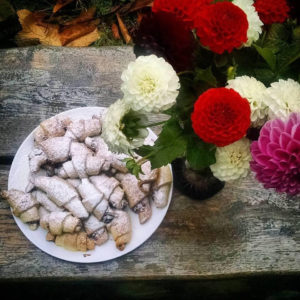
When asked how the South African Jewish community can help, she says, “During the war, I learned to accept help. Even a drop of help will form a whole sea. Equipment has turned out to be the most urgent need. It failed during three months of frantic operations. A dishwasher and freezer is something that we cannot buy without help because the café isn’t currently profitable. And without this equipment, all processes are complicated. We tried to collect money several times but in the end, the money went to feed the needy. We’re grateful to everyone who supports us and prays for Ukraine. We’ll definitely meet next year in Jerusalem!”
To help Lola, email S.krycek@gmail.com







